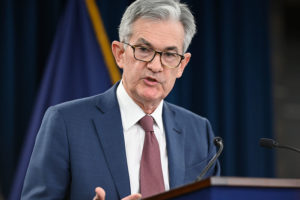After the Chinese government took a hard stand against cryptocurrency use in that country, the Biden administration is also clamping down on the use of cryptocurrencies as a tax evasion tool. The Financial Times reports:
The US Treasury said cryptocurrency posed a “significant detection problem by facilitating illegal activity broadly including tax evasion”, echoing comments from the European Central Bank this week, which said that cryptocurrencies’ “potential use for illicit purposes” were a cause for concern.
The US proposal is part of a Treasury report showing how Joe Biden’s White House plans to close the so-called “tax gap” by strengthening the Internal Revenue Service. The report is the latest in a series of White House proposals that would lead to the wealthiest Americans paying significantly more tax.
The Biden administration intends to close the tax gap — the difference between taxes owed to the US government and those actually paid — by investing nearly $80bn in the IRS and expanding the revenue service’s ability to identify wealthy individuals who avoid paying taxes owed.
The proposals include new disclosure requirements for financial institutions, which would need to share information with the IRS about the total amounts flowing into and out of bank accounts, in addition to existing reporting.
According to the Treasury, the overall “tax gap” was $600bn last year, and is forecast to rise to some $7tn in the next decade if left unaddressed. The Treasury said roughly 99 per cent of taxes due on wages were paid each year, but compliance on “less visible” sources of income that were more likely to be associated with higher earners — such as proprietorship or rental incomes — was estimated to be far lower.
At the same time the government is clamping down on private cryptocurrency use, it is exploring the creation of its own ‘digital dollar.’ Colby Smith of the FT reports:
Jay Powell on Thursday accelerated the Federal Reserve’s consideration of a possible digital version of the dollar that would be controlled by the US central bank.
The Fed chair said it would seek public comment on the idea, amid pressure from some US lawmakers and growing interest in so-called central bank digital currencies (CBDCs) around the world.
In a rare video statement released on the Fed’s website, Powell stressed there were potential benefits and pitfalls associated with digital currencies, and highlighted the growth of so-called stablecoins, private digital currencies pegged to the dollar, which he said could pose a threat to the financial system.
“The effective functioning of our economy requires that people have faith and confidence not only in the dollar, but also in the payment networks, banks, and other payment service providers that allow money to flow on a daily basis,” he said.
“Our focus is on ensuring a safe and efficient payment system that provides broad benefits to American households and businesses while also embracing innovation.”
The Fed has been considering a central bank-issued digital currency for some time, but it has been seen as more sceptical than some other countries’ monetary authorities. China is already piloting a digital renminbi.
Powell said any CBDC should serve “as a complement to, and not a replacement of, cash and current private-sector digital forms of the dollar, such as deposits at commercial banks”.
The Fed would issue a paper this summer “to stimulate broad conversation”, he said, and seek input on issues related to payments, financial inclusion and privacy, among other topics.
He added the Fed would seek to play “a leading role” in the evolution of international standards for CBDCs.
Read more here.

